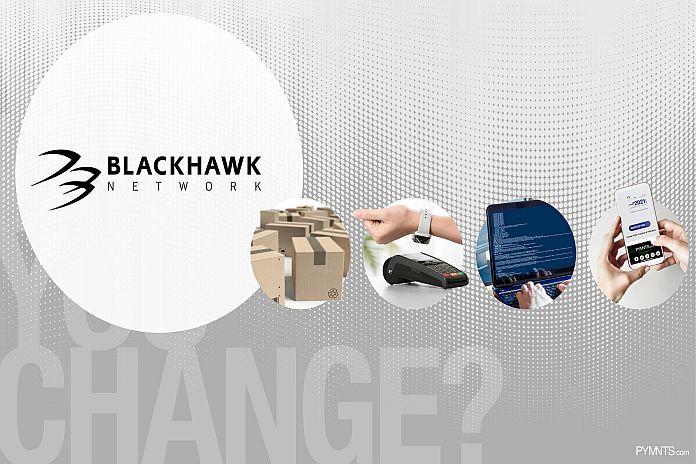By PYMNTS
“As COVID-19 reshapes the perceptions and needs of digital payments, one of the significant shifts for our team here at Blackhawk Network has been working to further intensify the growth and adoption of digital payments and gifting, including the expansion of mobile wallets with our retail partners and consumers,” says Brett Narlinger, head of global commerce for Blackhawk Network. Based on recent research, the Blackhawk team has found that mobile wallet adoption in the US jumped from 38 percent usage among consumers surveyed before the pandemic to 55 percent.
The following is an excerpt from What Did You Change?, contributed by Blackhawk Network Head of Global Commerce Brett Narlinger.
Since the start of the COVID-19 pandemic, retailers, business leaders and consumers have all been trying to wrap their heads around the shifts in retail and payments. One thing holds true for the changing scop of payments and FinTech: Businesses and consumers alike need to prepare for the continued, swift shift to mobile. This includes prioritizing a truly seamless experience and choices like in-store pickup, curbside delivery and expedited shipping at no additional cost.
As COVID-19 reshapes the perceptions and needs of digital payments, one of the significant shifts for our team here at Blackhawk Network has been working to further intensify the growth and adoption of digital payments and gifting, including the expansion of mobile wallets with our retail partners and consumers. From cash to rewards and gift cards, mobile wallets must transition to unlocked, truly usable resources across technology, retailers and buying experiences. Retailers and consumers are looking for more ways to unlock the value of their mobile wallets to spend across a variety of situations, and to redeem points and gift cards seamlessly across the shopping experience.
Based on recent research, we know that mobile wallet adoption in the US jumped from 38 percent usage among consumers surveyed before the pandemic to 55 percent. Additionally, on a multinational scale, 88 percent of shoppers surveyed across eight countries use a digital wallet of some kind. This usage spike signals that consumers are open to tapping digital payments in a strong way, but while many are trying digital solutions for the first time, they still maintain their existing expectations for the highest levels of service and functionality.
Getting consumers to tap into mobile wallets is just the first step, and in a post-pandemic world, the role of payments leaders will be to continue to innovate and motivate adoption and usage. We must move forward from simply unlocking the value stored in mobile wallets for customers, to moving sharply toward making that wallet the go-to payment source across all channels.
The pandemic has rapidly shifted people’s mindsets, needs and adoption habits in a way that experts were once predicting would take years. For Blackhawk, this shifting digital landscape has continued to be our key focus during COVID. As we continue to see, choice will ultimately win in the long run. The biggest winners in the next phase of the payments race will be the ones that are able to unlock several layers of the digital experience, including payments, rewards and top-tier user experiences.





